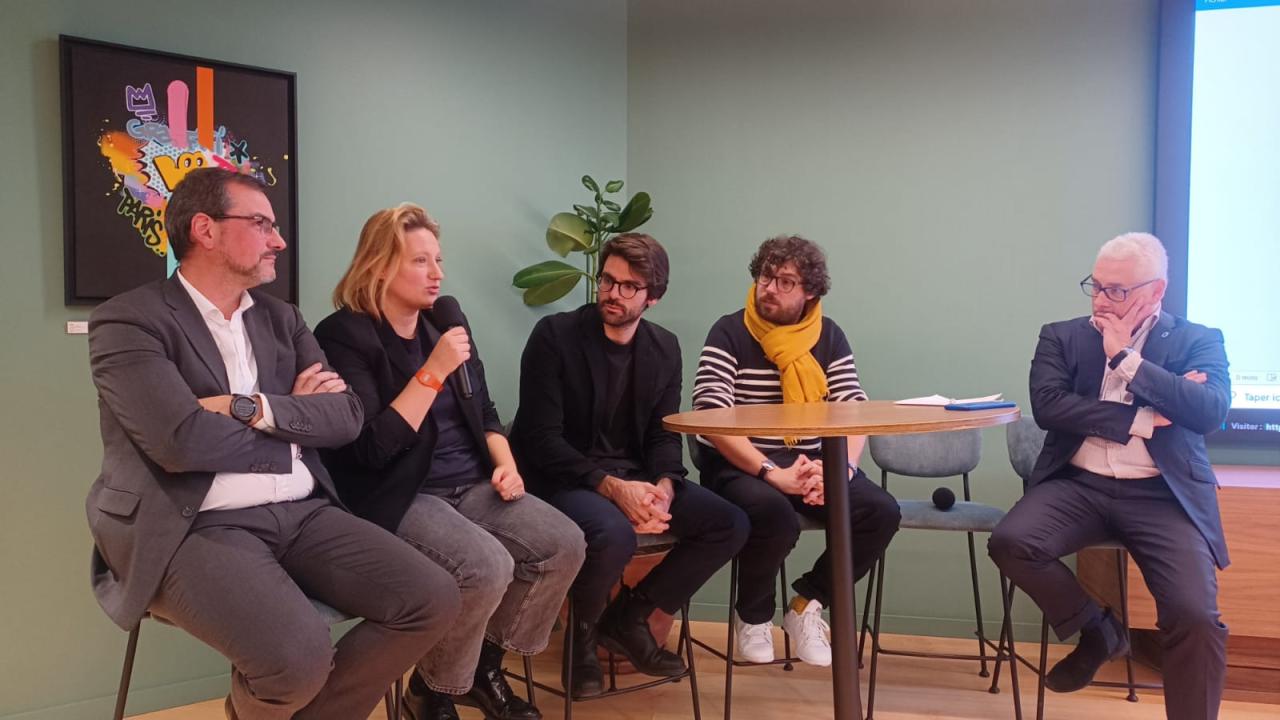Le NIDA in Issy-les-Moulineaux hosted the GlobalAI Association first conference in France on November 15, focusing on the ethics and governance of artificial intelligence.
The event underscored the significance of ethical practices and governance in AI development, highlighting the necessity for clear regulations and international collaboration to avert potential risks and enhance the advantages of AI.
Artificial intelligence (AI) is frequently touted as a transformative technology with the potential to revolutionize our societies. However, its emergence raises ethical, environmental, and governance concerns, as emphasized during the conference organized by our association.
The GlobalAI Association aims to advocate for the ethical dimensions of AI technologies and amplify the voices of those who are often underrepresented in institutional discussions.
Its goal is to elevate societal awareness regarding the opportunities and challenges related to AI while exploring the possibilities for global governance of AI applications.
The conference illuminated both the challenges and prospects tied to AI development, while stressing the necessity of international regulations and ethical standards.
A pivotal message from the conference, presented by Daniela Leveratto, president of Global AI, is that artificial intelligence should be regarded as a common good, accessible to everyone, irrespective of linguistic, cultural, or geographical differences. This inclusive approach aims to guarantee equitable and responsible use of AI while considering its social and environmental ramifications.
Emmanuel Goffi, a philosopher specializing in AI ethics and educator at ISEP, highlighted the importance of demystifying this technology while staying alert to its potential dangers. He also addressed the critical role of language and narrative in ethics, advocating for a scrutinizing perspective on prevailing discourses surrounding AI.
Fragmented Global Governance
The advancement of artificial intelligence is characterized by substantial geopolitical and economic interests. With projected revenues of $500 billion by 2024, the competition for AI is primarily led by the United States and China, leaving entities like the European Union and France trailing behind.
Nevertheless, these latter regions are focusing on a distinct approach grounded in regulation and standards.
The GDPR and the AI Act are examples that establish a legislative framework imposing ethical guidelines on international players.
Despite these initiatives, establishing global governance for AI remains a complex task. Approximately 75% of AI standards are created by Western nations, which represent only about 15% of the global population. This disparity leads to cultural and ethical conflicts, particularly with nations like India or Saudi Arabia, which critique the imposition of Western principles.
A panel of experts invited by the Global AI association included Michel-Marie Maudet, CEO of Linagora; Delphine Dogot, a law lecturer at Lille Catholic University and director of the Law/Digital studio; Stefano Piano from Altruistic (formerly OECD); and Bertrand Cassar, a legal doctor responsible for “Data Governance” within La Poste group.
Environmental and Societal Challenges
Another critical topic discussed at the conference was the environmental impact of artificial intelligence. The data centers needed to train large AI models, such as those similar to ChatGPT, consume vast amounts of energy.
Speakers noted that this impact is often underestimated and requires stringent regulation to prevent an unchecked carbon footprint.
Additionally, AI has the potential to worsen social and geopolitical disparities. The data utilized to train models largely comes from Western cultures, resulting in linguistic and cultural biases. Initiatives like LUCIE, an open-source model created by Linagora in Issy-les-Moulineaux, aim to diversify training data to address these inequalities.
Training for Better Governance
Education and training in artificial intelligence emerged as essential priorities. Michel-Marie Maudet stressed the importance of raising awareness among both citizens and professionals for a thoughtful application of AI. France, with its pool of highly skilled engineers and academics, plays a crucial role in this transformation.
The Global AI conference also emphasized the need for interdisciplinary education that merges technical skills with legal knowledge to prepare individuals for upcoming challenges.
Tools like ChatGPT can become valuable educational resources when appropriately contextualized, provided that users are not swayed by Silicon Valley’s marketing hype.
Towards a Controlled Future In summary, experts collectively underscored the pressing need for regulating artificial intelligence to mitigate risks. Whether concerning misinformation, militarization, or environmental repercussions, these risks are tangible. Inclusive and flexible global governance appears vital in maximizing AI’s benefits while minimizing its threats.
As one speaker pointed out: “We must not repeat the mistakes made at the dawn of the Internet.” In essence, the pursuit of innovation should not compromise fundamental ethical values.
With initiatives such as the AI Act and open-source projects like LUCIE, Europe has the potential to play a pivotal role in this transition.
However, success hinges on international collaboration; only through collective efforts can we create an artificial intelligence that genuinely serves humanity.
Key Statistics on AI
- Projected global AI revenues: $500 billion by 2024.
- Number of countries involved in the AI race: 83, with the United States and China leading.
- Rate of AI adoption by SMEs in Europe: just 3%.
- Proportion of AI standards produced by Western nations: 75%.




One thought on “AI: A Universal Common Good – GlobalAI Association Conference in Issy-les-Moulineaux”
Pingback:Too much information - GlobalAI Association